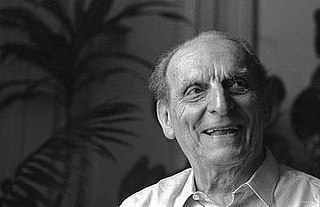
Norberto Bobbio was an Italian philosopher of law and political sciences and a historian of political thought. He also wrote regularly for the Turin-based daily La Stampa. Bobbio was a social liberal in the tradition of Piero Gobetti, Carlo Rosselli, Guido Calogero, and Aldo Capitini. He was also strongly influenced by Hans Kelsen and Vilfredo Pareto.
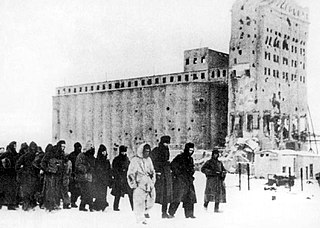
Italian prisoners of war in the Soviet union is the narrative of POWs from the Italian Army in Russia and of their fate in Stalin's Soviet Union during and after World War II.

Costanzo Preve was an Italian philosopher and a political theoretician.
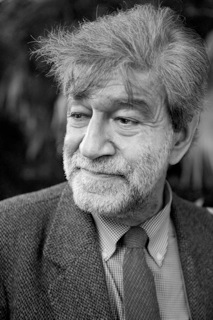
Luigi Zoja is an Italian psychoanalyst and writer. He took a degree in economics and did research in sociology during the late 1960s. Soon thereafter he studied at the C. G. Jung Institute in Zurich. After taking his diploma, Zoja returned to Zurich to work at a clinic for several years. He maintains a private practice in Milan. He also practiced for two years in New York City, during a period that bracketed the terrorist attacks on New York and Washington, D. C. He has taught regularly at the Zurich Jung Institute, and also on occasion at the Universities of Palermo and Insubria. From 1984 to 1993, Zoja was president of CIPA, and from 1998 to 2001 was president of the IAAP. Later he chaired the IAAP's International Ethics Committee. His essays and books have appeared in 14 languages.

Giustizia e Libertà was an Italian anti-fascist resistance movement, active from 1929 to 1945. The movement was cofounded by Carlo Rosselli, Ferruccio Parri, who later became Prime Minister of Italy, and Sandro Pertini, who became President of Italy, were among the movement's leaders.

Concentrazione Antifascista Italiana, officially known as Concentrazione d'Azione Antifascista, was an Italian coalition of anti-fascist groups which existed from 1927 to 1934. It was formed in Paris on 27 March 1927 with the purpose of the organization of Italian antifascist forces in order to reorganize the anti-fascist movement abroad avoiding to repeat the old divisions existing in Italy before the establishment of the regime. The CAI made a public appeal signed by Claudio Treves and Giuseppe Emanuele Modigliani (PSLI), Pietro Nenni and Angelica Balabanoff (PSI), Fernando Schiavetti and Mario Pistocchi, Bruno Buozzi and Felice Quaglino (CGdL) and by Alceste De Ambris. Communists remained outside along with liberals, populars and others in order to keep contact with Italian masses «in their social defence and political resistance moves». The official weekly newspaper La Libertà was created on 1 May 1927 with Claudio Treves as director.
"Fischia il vento" is an Italian popular song whose text was written in late 1943, at the inception of the Resistenza. Along with Bella ciao it is one of the most famous songs celebrating the Italian resistance.

The Italian Civil War was a civil war in the Kingdom of Italy fought during World War II from 8 September 1943 to 2 May 1945, by the Italian Fascists of the Italian Social Republic, a collaborationist puppet state created under the direction of Nazi Germany during its occupation of Italy, against the Italian partisans, materially supported by the Allies, in the context of the Italian campaign. The Italian partisans and the Italian Co-Belligerent Army of the Kingdom of Italy simultaneously fought against the occupying Nazi German armed forces. Armed clashes between the National Republican Army of the Italian Social Republic and the Italian Co-Belligerent Army of the Kingdom of Italy were rare, while there was some internal conflict within the partisan movement. In this context, Germans, sometimes helped by Italian Fascists, committed several atrocities against Italian civilians and troops.
Claudio Pavone was an Italian historian and archivist.

The Four Days of Naples refers to World War II uprising in Naples, Italy, on September 28 to September 30, 1943 against Nazi German occupation forces, immediately prior to the arrival of Allied forces in Naples on October 1.
Franco Fornari was an Italian psychiatrist, who was influenced by Melanie Klein and Wilfred Bion. He was a professor at the University of Milan and the University of Trento. From 1973 to 1978 he served as president of the Società Psicoanalitica Italiana.
The Acqui Award of History is an Italian prize. The prize was founded in 1968 for remembering the victims of the Acqui Military Division who died in Cefalonia fighting against the Nazis. The jury is composed of seven members: six full professors of history and a group of sixty (60) ordinary readers who have just one representative in the jury. The Acqui Award Prize is divided into three sections: history, popular history, and historical novels. A special prize entitled “Witness to the Times,” given to individual personalities known for their cultural contributions and who have distinguished themselves in describing historical events and contemporary society, may also be conferred. Beginning in 2003 special recognition for work in multimedia and iconography--”History through Images”—was instituted.

Enrico Martini Mondovì, 29 January 1911 – Turkey, 19 September 1976) was an Italian soldier and partisan, an Alpini Major, founder of the 1 Group Alpine Divisions in the Italian Resistance, and a recipient of the Gold Medal of Military Valor.
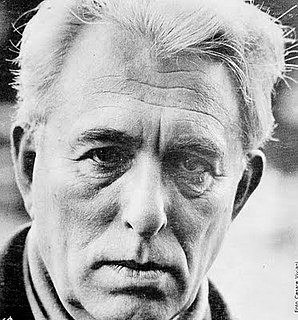
Franco Fortini was the pseudonym of Franco Lattes, an Italian poet, writer, translator, essayist, literary critic and Marxist intellectual.
The Committee of National Liberation for Northern Italy was set up in February 1944 by partisans behind German lines in the Italian Social Republic, a German puppet state in Northern Italy. It enjoyed the loyalty of most anti-fascist groups in the region.
Furio Jesi was an Italian historian, writer, archaeologist, and philosopher.
The organization officially known as Volante Rossa "Martiri Partigiani", often mentioned simply as Volante Rossa, was a clandestine antifascist paramilitary organization active in and around Milan in the postwar to the Second World War, from 1945 to 1949. Led by "tenente Alvaro", nom-de-guerre of Giulio Paggio, it was made up of communists partisans and workers who aimed with their actions to build a continuity with the wartime action of the Italian Resistance.
Renata Viganò (1900–1976) was an Italian writer best known for her neo-realist novel L'Agnese va a morire, published in 1949. Viganò was an active participant in the Italian Resistance movement during World War II and featured fictionalized accounts of her experiences as a partisan in her written work.

The Brigate Garibaldi or Garibaldi Brigades were partisan units aligned with the Italian Communist Party active in the armed resistance against both German and Italian fascist forces during World War II.
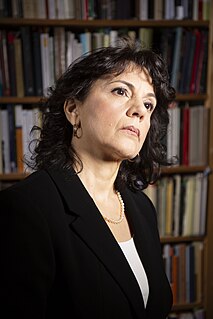
Donatella Ester Di Cesare is an Italian political philosopher, essayist, and editorialist. She currently serves as professor of theoretical philosophy at the Sapienza University of Rome. Di Cesare collaborates with various Italian newspapers and magazines, including L’Espresso and Il Manifesto. Her books and essays have been translated into English, French, German, Spanish, Portuguese, Danish, Croatian, Polish, Finnish, Norwegian, Turkish, and Chinese.












